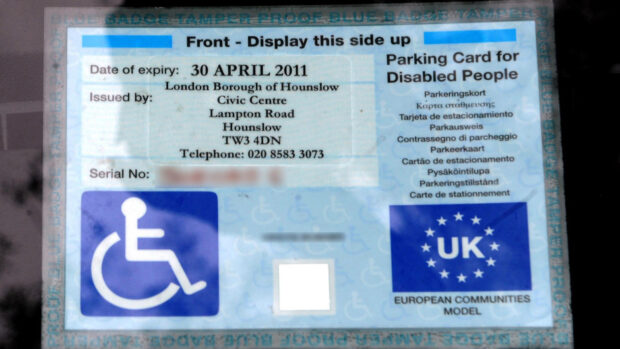Six-in-ten disabled Scots who appealed against a decision to deny them benefits have been successful in Scottish courts during the past three years – but at least 420 people died UK-wide while waiting on a hearing.
That’s prompted calls from some charities for a shake-up to the system to help ensure “people get the support they need”.
Analysis of data between 2018 and 2021 shows more than 41,800 people have appealed their benefits in Scotland.
Of those, just over 60%, that’s more than 26,733 cases in total, came out in favour of the disabled claimants.
However, that still left 14,671 people out of luck, including 2,683 of the 7,028 claimants who appealed in the last year.
The success rate for appeals in Scotland has dropped from 64% to 62% and now 61% in the past three years, respectively. The coronavirus pandemic is also thought to have contributed to claims dropping by two-thirds in 2020-2021.
Citizens Advice Scotland spokesman David Scott said the appeal success rate shows “the decision-making process isn’t working”.
“Sadly it doesn’t surprise us as we see cases in the Citizens Advice Bureau network every day of people who aren’t getting the support they need,” he said.
“These show the need for government to improve the system. Nobody should be denied the support they are entitled to, but particularly not disabled people.
“We would urge that anyone who is struggling financially or with accessing their social security entitlements come and get our advice. Our service is free, confidential and completely impartial.”
Personal Independence Payments worst hit
Mark Jackson, policy and public affairs manager at end-of-life charity Marie Curie, said it was “not surprising” that most appeals are about Personal Independence Payment.
“At Marie Curie we know there are significant issues with the PIP assessment process and people who are terminally ill don’t have time on their side,” he said.
“The way in which assessments are conducted is difficult for terminally ill people at a time when they are coming to terms with their diagnosis or feeling extremely unwell.
“The tick box nature of PIP assessments also disregards any complexities and can easily misrepresent someone’s condition.
“Ultimately, dying people have limited time left and many won’t live to see the outcome of a successful appeal or tribunal. They need the Department for Work and Pensions (DWP) to get decisions right first time, not after a lengthy process of appeals.”
Deaths without resolution ‘heart-breaking’
UK-wide 420 people have died while formally challenging their PIP benefit award between 2018 and today.
Of those, 130 deaths were in the last 18 months alone.
Bereaved families who won appeals on behalf of their deceased relatives said they continued to fight cases on principle but they had taken a toll on their emotions.
Daphne Hall, the vice-chair of the National Association of Welfare Rights Advisers , said: “It is, of course, heartbreaking that people die without having resolution.”
Benefits assessments are currently carried out on behalf of the Department of Work and Pensions (DWP) by private contractors, but the Commons Work and Pensions committee has said failings in disability benefits assessments has created a “pervasive lack of trust” in the system.
Changes have been made
In 2018 it suggested ministers should consider taking the process back in-house.
The DWP says it has now introduced a new approach to how it makes early decisions aimed at giving staff more time to contact customers to get further information to support their claim.
It claims that most decisions are overturned on appeal “mainly because of the claimant’s oral and new written evidence.”
A DWP spokesman said: “We support millions of people a year and our priority is they get the support they are entitled to as quickly as possible.
“The vast majority of PIP cases are not appealed and we continue to improve the service offered to customers, including through recent changes to our decision-making process.
“The PIP assessment process is carried out by experienced health professionals and considers how people are affected by their disability, rather than just the disability itself, and more than double the proportion of PIP claimants get the top rates of support compared to those who receive Disability Living Allowance.”
The figures were obtained by the BBC’s Shared Data Unit who submitted Freedom of Information responses to HM Courts and Tribunals Service and the Department for Work and Pensions.
